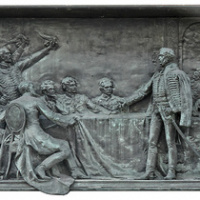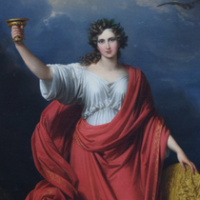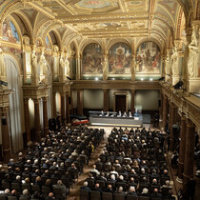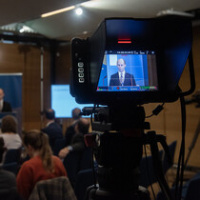The 7th AMAT Conference - Az Amerikai Magyar Akadémikusok Társaságának 7. konferenciája
Az Amerikai Magyar Akadémikusok Társasága New York-ban tartotta éves konferenciáját. A rendezvénynek Magyarország Főkonzulátusa adott otthont.
A konferencia részletes programja:
9:00 Welcome Addresses
Istvan Pasztor, Consul General
Tamas Novak, Scientific Attaché
Pal Maliga and Eva Nagy, AMAT Co-Presidents
SESSION 1 - The Future of AMAT
Chair: Pal Maliga
9:10 – 9:40 Keynote #1: Zoltan J. Acs, George Mason University, Washington, DC, USA
“Entrepreneurial ecosystems and economic development policy “
Abstract: We discuss economic development policy facing the burgeoning entrepreneurship ecosystem in Hungary. We aim to answer four questions. First, how are entrepreneurship ecosystems different from regional innovation systems and clusters, two related frameworks that had been vastly popular among economic development policymakers prior to the rise of entrepreneurship ecosystems? Second, what are the key findings in the entrepreneurship ecosystem research that can guide economic development policymaking? Third, how should economic development policy be adjusted under the entrepreneurship ecosystem approach? Lastly, what does the ongoing debate on the geographical boundaries of entrepreneurship ecosystems mean for economic development policy?
9:40-10:00 Karoly Kocsis, Hungarian Academy of Sciences, Budapest, Hungary
“The Geography of the Hungarian Diaspora in the World”
10:00-10:20 Réka Varga, Dean, Nemzeti Közszolgálati Egyetem, Budapest, Hungary
"International order in light of recent conflicts”
SESSION 2 – Biomedical Sciences
Chair: Laszlo Zaborszky
10:50 - 11:10 Attila Losonczy, Columbia University, New York, NY, USA
“Memories are made of this — lessons from a smaller brain.”
11:10 - 11:30 Erno Sajo, University of Massachusetts Lowell, Lowell MA, USA
"Nanoparticles in Radiation Therapy”
11:30 - 11:50 Alán Alpár, Semmelweis University, Budapest, Hungary
“The complex role of the calcium sensor secretagogin in the brain”
SESSION 3- Updates on Long COVID
Chairs: Sandor Szabo and Eva Nagy
12:50-13:10 Eva Nagy, University of Guelph, Canada
"Coronavirus and its variants"
13:10-13:30 Sandor Szabo, American University of Health Sciences (AUHS), Long Beach, CA, USA
“Long COVID is real – but its pathogenesis is still a mystery, and its pharmacology is pitiful”
13:30-13:50 Zoltan J. Acs, George Mason University, Washington, DC, USA
“The economic impact of COVID-19 & Long COVID on the world”
SESSION 4 – Science in Service of Society
Chair: Gabor Tigyi
13:50-14:10 Gabor Balazsi, Stony Brook University, Stony Brook, NY, USA
"Mapping protein dosage effects with the help of synthetic gene circuits".
14:10-14:30 Dorottya Nagy-Szakal, Biotia, Inc.; SUNY Downstate Health Sciences University, NY, USA
“Genomics-based approaches for precision infectious disease diagnostics and future pandemic preparedness”
14:30-14:50 Pal Maliga, Rutgers University, Piscataway, NJ, USA
“Re-engineering the engineer: tasking with new jobs Agrobacterium, the workhorse of plant engineering”
Coffee break (14:50-15:20)
15:20-15:40 Gabor Forgacs, University of Missouri, Columbia, MO, and Fork & Good, Inc.
“Cultured Meat: what is it and why is it important?”
15:40-16:00 Lajos Balogh, Editor-in-Chief, Precision Nanomedicine, USA
“Science, Pseudo-science, False, and Fake Science”
SESSION 5 – The Future of Cities
Chair: Edith A. Moravcsik
16:00-16:20 Eva Lovra, Fulbright Visiting Professor at the University of Pittsburgh, Pittsburgh, PA, USA; Department of Civil Engineering, University of Debrecen, Hungary
“Urban Tissue Typology in Central Europe: the Integrated Urban Morphology Method”
16:20-16:40 Zoltán Bereczki, Department of Civil Engineering, University of Debrecen, Hungary
“Procedural approach to architectural order”
16:40 Business meeting for AMAT members and HAS representatives only
Introduction: Pal Maliga
Keynote 2. Janos Bergou, Department of Physics and Astronomy, Hunter College of the City University of New York, New York, NY, USA
“Quantum Miracles: The 2022 Nobel Prize for Physics”
Abstract: By some personal reminiscences, I’ll tell the story of how the research directed toward the philosophical foundations of quantum physics, once regarded as a waste of time that certainly could not secure a decent academic job, became mainstream and led to spectacular applications, bordering science fiction. These applications include teleportation, quantum computing, and quantum communication, and many others, and ushered us in the era of the second quantum revolution that will change our lives forever.





